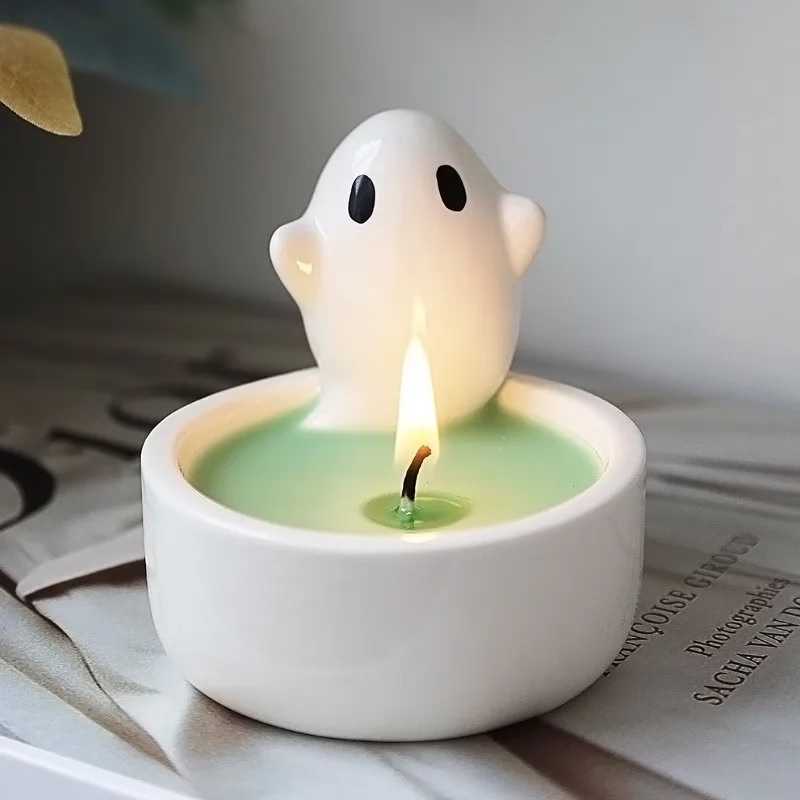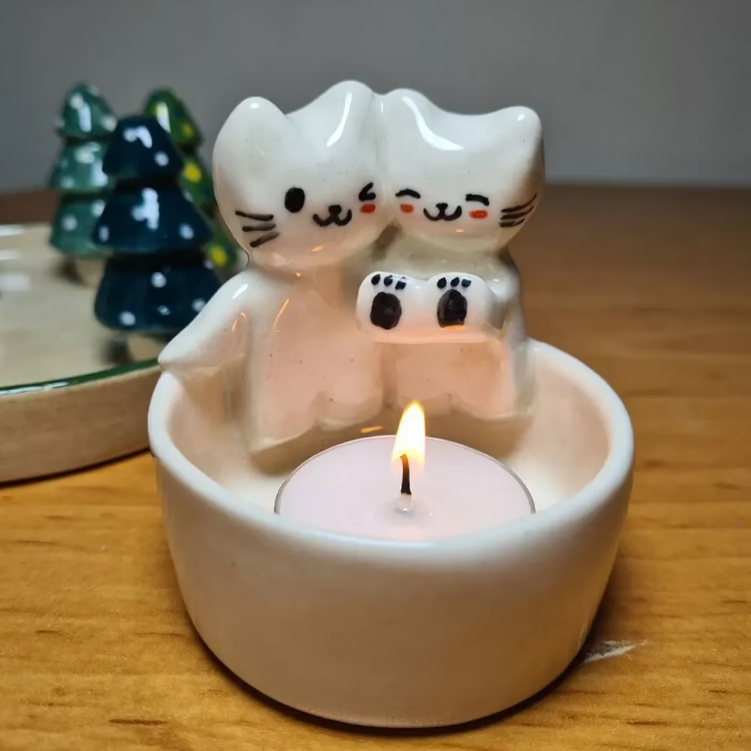Advertisement: Shop the Cutiest Candle Holders You’ll Ever Find
If you ever get to a point where reading feels just as much fun as peeling potatoes, welcome to the Reading Slump Club. Once one of the most rewarding, longed-for activities of the day, reading can suddenly seem like a chore. Nothing holds your attention, and you don’t want to finish (or start) any book.
A reading slump can be triggered by stress, reading burnout, a shift in daily life, or even body issues like hormone changes or illness.
The good news is that reading slumps are temporary – if you don’t let them put down roots. And with the right strategy, you can revive your reading spark even faster.
Why Slumps Happen
Even the most passionate readers hit a wall sometimes. A reading slump is just a natural pause. But identifying the reason it happened to you can help you find your way out with less friction.
Reading Burnout
This one can hit after different events. If you’ve been binge-reading, for example. Someone who tears through a 900-page fantasy trilogy in five days may not be able to read another book for weeks. Also, consuming intense academic or professional material like law textbooks, research papers, or corporate reports, your brain might associate reading with exertion instead of pleasure. The same if you went through a series of uninteresting stories – your mind might signal that nothing else will be pleasurable enough.
Stress
Modern life is busy and loud. Even if you have the time, your attention might be too fractured to sink into a story. Constant notifications, endless flood of news, being chronically online, or just the pressure to multitask make it hard to focus on a narrative thread. A lot of people say they want to read, but when they finally sit down, their brain is still spinning from the day. Add personal life stress, like family or work issues, and holding focus through a whole chapter will be more than your brain can manage.
Shifts in Daily Life
When your daily routine changes – whether due to moving to a new place, starting a new job, changing school schedules, or adjusting to family responsibilities – it can disrupt the mental space you usually reserve for reading. New routines are challenging and often bring extra tasks or irregular hours that leave less time and energy to focus on books. Even positive changes, like a new relationship or hobby, can shift your priorities and attention, making it harder to settle into reading as you once did. Your brain has to adapt to these new demands, and during this transition, reading might feel more like a burden than a pleasure.
Body Issues
Physical health plays a huge role in mental energy and focus, both essential for reading. When your body is not well, it will not just impact your physical state; it will affect your usual enthusiasm for stories. Hormone fluctuations, like those during puberty, pregnancy, menopause, or thyroid imbalances, can affect concentration, mood, and fatigue levels. Similarly, acute or chronic illness decreases your energy levels, making it difficult to engage with mental activities like reading.
Pressure
Not all pressure is external. If you feel like you should be reading certain books – classics, award-winners, or ones trending on social media – and force yourself to do so, you’re paving the road to reading burnout. Even setting reading goals that are not at all realistic with your daily life can make them loom over you like homework. You can’t enjoy a book when your mind is ticking off numbers or worrying that you’re falling behind.
Decision Fatigue
Being surrounded by too many options can stop you from choosing. It actually has a name: analysis paralysis. With shelves full of unread books or hundreds of saved titles on your wishlist, the act of choosing can feel exhausting – both mentally and emotionally. You want to read them all at the same time, but you can’t decide which one to pick, so you walk away from the shelf entirely.
Refresh Your Reading Experience
The way out of a slump may not be to push harder, but to read differently.
Read for Joy, Not Completion
One of the most freeing mindset shifts is to stop reading for the sake of finishing. You don’t need to complete every book or commit to 300 pages. Short stories, poems, essays, or even children’s picture books can spark joy without the burden of time investment.
You can keep a slim collection of short pieces of writing at hand – not to read through, but to dip into when the mood strikes. That casual, non-linear approach to reading can be relaxing.
Create a Cozy, Low-Tech Book Nook
Your environment matters. A cluttered, dark place with uncomfortable seats doesn’t invite immersion. But a soft chair, warm lighting, and a scented candle can signal to your brain that it’s time to unwind. You don’t need a reading throne. Just a corner that feels safe, soft, and separate from your to-do list.
One helpful tip: leave your phone in another room. Even people with the best intentions find themselves checking social media ‘just for a second’ and never returning to the page. And if you read digitally, a dedicated e-reader – like the first ones listed in this post – is preferable to tablets.
Reread a Favorite Book
There’s something soothing about returning to a book that once made you feel something good. It’s like revisiting an old friend. Whether it’s an old childhood fantasy, a coming-of-age novel, or even a comfort read you barely remember, rereading can reawaken the feeling of being immersed in a story.
Rereading isn’t repetition; it’s reconnection.
Try a New Format
Changing how you consume stories can reinvigorate your interest. Trying a different medium can unlock a format that better fits your current energy level.
- Audiobooks let you ease into stories while walking the dog, doing dishes, or lying on the floor resting your back from a hard day. You spare your eyes, do less mental effort, and can have the perk that only a talented voice actor can provide.
- E-books can be a helpful change if you’re used to reading physical books. The shift in feel from paper to e-reader, like the adjustable text, built-in dictionary, size, and lighting, can be enough for your brain to shift from what caused the slump and revive the interest in stories.
- Magazines or long-form articles offer bite-sized engagement. No narrative pressure, but still mentally satisfying.
Read Something Unusual
From time to time, you may overdose on your preferences, especially if you’re a fast reader who consumes a large number of stories in a short period and favours commercial books. Genre fiction conforms to conventions, tropes, and formulas based on trends, so those books might start to sound all the same after a while.
Try a change of genre. A heavy fantasy reader might find a slim memoir surprisingly refreshing. When you read outside your norm, you open up new emotional and intellectual spaces. You don’t need to go all the way to any other extreme: Someone who reads mostly contemporary romances might discover delight in historical romances.
Schedule ‘No Pressure’ Reading Time
Set aside a small, intentional window, like ten minutes, no strings attached. You’re not reading so much as browsing. Flip through a few pages, sample an intro, skim a poem. It’s about reconnecting with curiosity, not commitment.
Some people do this first thing in the morning with coffee; others carve out a quiet ten minutes before bed. It becomes less about achievement and more about ease.
Share and Connect
Reading doesn’t have to be solitary. Some readers don’t get so excited to read again unless they can talk about the books with someone else. Sometimes, it’s not the story but the community that draws you back.
But you don’t have to get into a book club or yet another social media platform, even if book-focused, like Goodreads or StoryGraph if you’re not into them. A casual recommendation from a friend or giving someone a book you liked can make stories feel alive again.
Accept the Slump
You’re allowed to not be a reader for a little while – it won’t make you less of a reader. As I said at the beginning of the article, reading slumps are temporary. Sometimes, just letting them be shortens it more than trying to overcome it.
Our brains need rest. Take your time to enjoy art, music, journaling, gardening, or any other activity that can provide well-being will help to bring the pleasure of reading back. No need to worry.
5 Gentle Reminders
- There’s no ‘right’ number of books to finish per year.
- You don’t need to read fast, often, or ‘important’ books to be a real reader.
- You can quit books. No ceremony needed.
- Reading is valid in all forms: web comics, recipes, fanfic, articles, and audiobooks.
- You’re still a reader, even if you haven’t read in a while.
Summing Up With The ‘One Page’ Trick
Sit down with any book and read just one page. That’s it. If you want to stop after one, fine. If you keep going, go for it. As soon as you feel boredom creeping out from the cracks in the wall, stop.
Sometimes, it’s the starting that feels out of reach. Taking one small step, like cracking the spine or opening an e-reader, lowers the barrier enough to surprise yourself.
Other options for the ‘one page trick’:
- Read for five minutes each day.
- Choose a book with very short chapters.
- Pair reading with another cozy ritual (tea, a candle, a quiet playlist).
Just a small step can make a giant leap into bigger moments of joy.
Reading slumps are part of life. You haven’t lost your love of books; your brain is just resting. Give it room, give yourself grace, and rest assured that any of the incredible stories to be known in this world are going nowhere – they will wait for you.
Find out how to ease back into reading without the cost in this article that shows where to get free and low-cost digital books, helping you reconnect with stories risk-free.
Advertisement: The Best 6″ Colour eReader with Case







